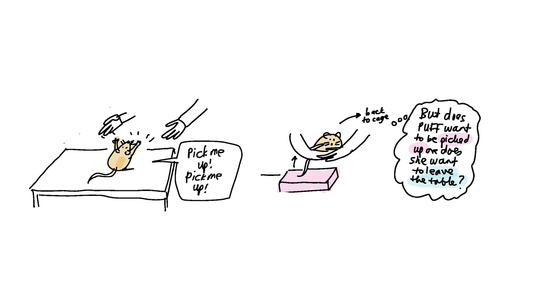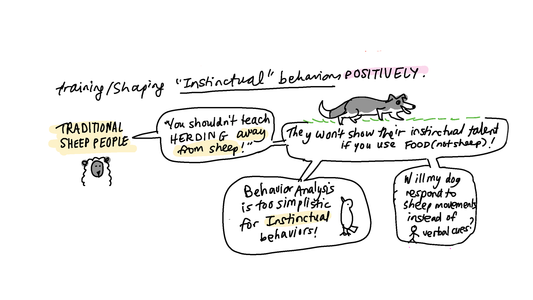What is an Oriental Expression?
Lili ChinI've been posting a page from Dogs of the World a few times a week on instagram and bluesky. Yesterday, I decided to prepare a post on the Afghan Hound.
Reading the FCI and Kennel Club breed standards, the ideal Afghan Hound is supposed to have an "Eastern and Oriental" expression. I did a double-take when I read this.

What the heck is an Eastern and Oriental expression? All the more troubling as this was filed under Behavior and Temperament. A couple of years ago, I was listening to an interview with a well-known dog author whose name I won't mention, who described Asian dog breeds as being reflective of Asian culture and Asian people and I had also immediately thought to myself "What the heck is an Asian personality?" Asia is made up of around 50 countries and hundreds of cultures.
Narratives around dog breeds often tell us more about the class and cultural mindset of people writing these than about the dogs themselves The way dog breeds are written about is usually informed by a very Eurocentric (NOT objective) point of view.
I am no historian; I don't know shit, but I take everything I read with a grain of salt and am aware that embellishment and exotification is the whole point in dog breed narratives. Why do we accept these uncritically, as they are?
The modern Afghan Hound was created by British fanciers. We will usually read that members of the British colonial army returned from service in Afghanistan with the dogs that would become Afghan Hounds. Rarely do we read about what the British were doing in Afghanistan. In the 1900s, the British Empire referred to anywhere that was outside Europe - all of Asia, the Middle East, and North Africa - as The Orient, a place that was to them rich with resources to loot, control, and possess. They also promoted the racist myth of Orientals as uncivilized and dangerous people to justify killing them or converting them.
Back to dog breed standards. In the Afghan Hound, "Oriental expression" seems to refer to the dogs' facial structure and a particular look. They use words like dignified, aloof and fierce. "The Afghan looks at and through one."
I've been listening to Triploi's podcast series and learning histories that we weren't taught at school. The episode on the history of Afghanistan is worth listening to. The British Colonial Army were defeated by Afghan warriors in all their invasions of Afghanistan.
But there is another breed with an Oriental expression - the Japanese Chin!

This is funny to me because the rounded brachycephalic structure of the Japanese Chin's head could not be more different from the Afghan Hound's long and skinny dolichocephalic head shape.
From the Japanese Chin Club of America's website: The “distinctive Oriental expression” is a large, flat head with big, dark, lustrous eyes, which traditionally have a small amount of white showing in the inner corners.
A very different definition of "Oriental expression" from the one used by the British for the Afghan Hound! Here, "Oriental" also seems to suggest something small, lightweight, exotic, strange, and childlike, and from the Far East. The other breeds with this phenotype - the Pekingese, Shih Tzu, etc. all come from China.
From the late 1800s until the mid 1900s, while people were loving on the "Oriental expression" of these little dogs, US racism against "Orientals" was intense. See the Chinese Exclusion Act.
In 2016, the outdated word "Oriental" was removed from federal law by President Obama for being associated with a long history of systemic racism and anti-Asian violence. "Oriental" still gets used for things like carpets, vases, and instant noodle flavoring, but it is definitely not cool to call people and living beings Oriental.
"Oriental represents the long and difficult history of the West’s negative views and prejudice towards Asia, the Middle East, and North Africa, the legacy of which remains imbedded in today’s world. I am fully aware that simply erasing the word from our vocab will not magically fix everything. Yet, to call someone oriental is to insist on some level that we are somehow exotic, worthy of gawking at but not speaking to. That we are only our beautiful dresses, vases, and furniture, and the rest of our cultures and histories are irrelevant. Perhaps there are not easily solutions to this issue and we must take the time to examine our own biases and understand where they came from and why the exist."




2 comments
Thank you for this post. Much gratitude for your Behavior Blog and this one is especially close to heart. Recently moved from an ethnically-diverse metro area in the U.S. to an area where “Oriental” is commonly used to refer to restaurant cuisine as well as ethnic groups of people who look like me. Sigh. I agree, I thought things would be different by now… Keep on keeping on. Hope this post encourages conversations that give one pause to think about the use of language in current society.
Thank you for this, Lili. You’re educating about something that should have been brought to light a long time ago, and I especially appreciate the historical context and links to resources. I’ll be listening to the Afghanistan podcast; I am woefully ignorant of that history. Thanks for doing this work!